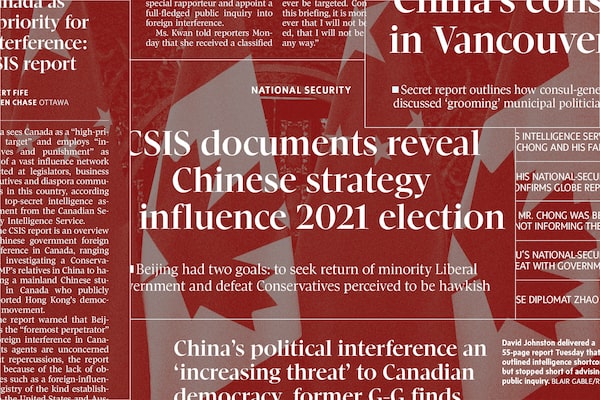
Illustration by The Globe and Mail (photo: Fred Dufour/The Canadian Press)
Canada’s public inquiry into foreign interference gets under way with hearings Monday, after almost a year of revelations, many based on secret intelligence documents.
The first five days of hearings will focus on issues of confidentiality of information – determining what can be made public and what can’t. The next set of public hearings is scheduled to take place in March.
The Globe and Mail’s reporting on Chinese state interference in Canada – conduct the Canadian Security Intelligence Service has called the “greatest strategic threat to national security” – played an instrumental role in prompting the government to call the inquiry.
The Globe wrote 17 stories on foreign interference last year, mostly based on debriefings from national-security sources and leaked top-secret and secret documents from CSIS. As well, one of the key national-security sources wrote a first-person article in The Globe explaining why they risked prison out of frustration that senior levels of the government were ignoring the extent of Chinese state interference in the democratic process.
Here is a refresher of what The Globe reported in the months leading up to the inquiry.
Feb. 17, 2023: CSIS documents reveal Chinese strategy to influence 2021 election
China employed a sophisticated strategy to disrupt Canada’s democracy in the 2021 federal election campaign as Chinese diplomats and their proxies backed the re-election of Justin Trudeau’s Liberals and worked to defeat Conservative politicians considered to be unfriendly to Beijing.
Documents drawn from a series of CSIS intelligence-gathering operations illustrated how an orchestrated machine was operating in Canada with two primary aims: to ensure that a minority Liberal government was returned in 2021, and that certain Conservative candidates identified by China were defeated.
The documents said Beijing was “pressuring its consulates to create strategies to leverage politically (active) Chinese community members and associations within Canadian society.”
Despite being seen by China as the best leader for Canada, Beijing also wanted to keep Mr. Trudeau’s power in check – with a second Liberal minority in Parliament as the ideal outcome.
In early July, 2021, one consular official at an unnamed Chinese diplomatic mission in Canada said Beijing “likes it when the parties in Parliament are fighting with each other,” according to the documents. But if there’s a majority, the official said, “the party in power can easily implement policies that do not favour the PRC [People’s Republic of China].”
Signs lead to a polling place in Vancouver's Downtown Eastside on Sept. 20, 2021, the day of the last federal election.Darryl Dyck/The Globe and Mail
The intelligence reports showed that Beijing was determined that the Conservatives not win. China employed disinformation campaigns and proxies connected to Chinese-Canadian organizations in Vancouver and the Greater Toronto Area, which have large mainland Chinese immigrant communities, to voice opposition to the Conservatives and favour the Trudeau Liberals.
The CSIS documents revealed that Chinese diplomats and their proxies, including some members of the Chinese-language media, were instructed to press home that the Conservative Party was too critical of China and that, if elected, it would follow the lead of former U.S. president Donald Trump and ban Chinese students from certain universities or education programs.
Tactics included undeclared cash donations to political campaigns or having business owners hire international Chinese students and “assign them to volunteer in electoral campaigns on a full-time basis.” Sympathetic donors were also encouraged to provide campaign contributions to candidates favoured by China – donations for which they received a tax credit from the federal government. Then, the CSIS report from Dec. 20, 2021, said, political campaigns quietly, and illegally, returned part of the contribution – “the difference between the original donation and the government’s refund” – back to the donors.
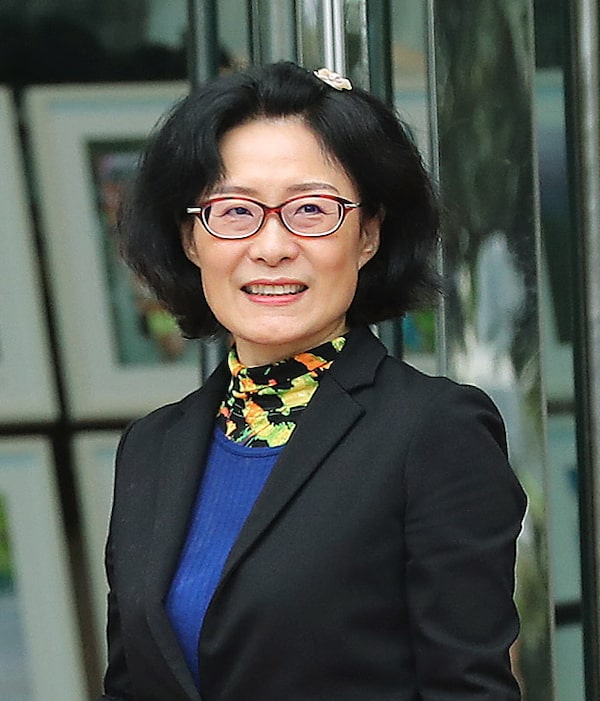
Tong Xiaoling is China's former consul-general in Vancouver.South China Morning Post via Getty Images
A month after the September, 2021, vote, CSIS reported that it was “well-known within the Chinese-Canadian community of British Columbia” that then Vancouver consul-general Tong Xiaoling “wanted the Liberal Party to win the 2021 election,” according to one of the documents. CSIS noted that Ms. Tong, who returned to China in July, 2022, and former consul Wang Jin made “discreet and subtle efforts” to encourage members of Chinese-Canadian organizations to rally votes for the Liberals and defeat Conservative candidates.
In early November, 2021, CSIS reported, Ms. Tong discussed the defeat of a Vancouver-area Conservative, whom she described as a “vocal detractor” of the Chinese government. A national-security source said the MP was Kenny Chiu, who was targeted in retaliation for his criticism of China’s crackdown in Hong Kong and his 2021 private member’s bill aiming to establish a registry of foreign agents.
Ms. Tong was quoted saying that Mr. Chiu’s loss proved “their strategy and tactics were good, and contributed to achieving their goals while still adhering to the local political customs in a clever way.”
A supporter takes a selfie with Prime Minister Justin Trudeau at a Montreal subway station on Sept. 21, 2021, the day after his Liberals returned to a minority government.Carlos Osorio/Reuters
Feb. 18: China warned its Canadian contacts to be wary of CSIS
Chinese diplomats quietly issued warnings to “friendly” influential Canadians in early 2022, advising them to reduce their contact with federal politicians to avoid being caught up in foreign-interference investigations by CSIS.
A Jan. 15, 2022, intelligence report said China had learned that CSIS – for the first time – was warning individual MPs and senators about influence operations. That set in motion an effort by Chinese diplomats to close down foreign-interference operations directed at elected officials in Ottawa.
CSIS had become increasingly alarmed about efforts by China and its agents of influence to covertly cultivate relations with elected officials to gain sway over parliamentary debates and government decision-making.
The spy service had asked MPs to alert them of any suspicious activity, providing the politicians with names and contact information of CSIS agents to contact in order to pass on information.
Canadian friends were described by CSIS as non-ethnic Chinese individuals who maintain relations with PRC officials in Canada and have close ties with federal politicians.
Of particular concern to Beijing was CSIS’s new focus of trying to put pressure on Canadian universities and researchers from collaborating with China on leading-edge science and technology projects.
A man walks past the Beijing headquarters of China's central bank in 2020.Jason Lee/Reuters
Feb. 20: CSIS documents detail how China targets Canadian politicians, business leaders
Canadian politicians, officials and business executives are the prime targets of Chinese government espionage that employs blackmail, bribery and sexual seduction, with the country even enlisting the Bank of China in its foreign-influence activities.
CSIS documents outlined how China instructed its consulates and visa offices to alert Beijing to prominent and influential Canadians planning to visit China.
In a December, 2021 report, CSIS explained how Beijing’s uses three colour-coded “political interference tactics” to gain influence over Canadians here and those travelling to China. Blue refers to sophisticated cyberattacks on targets’ computers, smartphones and hotel rooms for possible blackmail. Gold refers to bribes, while yellow is what CSIS described as “honey pots” – how the Chinese Communist Party employs sexual seduction to compromise a target.
A Feb. 2, 2022, CSIS report explained how the Chinese consulate in Montreal tracked visa applications of influential and prominent Canadians travelling to China. It said the visa centre at the Bank of China was also recruited to submit details of Canadians planning to attend major exhibits such as the China International Import Expo trade fair.
Specifically, China wanted the names of presidents and vice-presidents of large Canadian corporations and the presidents of small and medium-sized companies. Some of these Canadians are considered “work targets,” the head of China’s Montreal consulate visa office explained to the Bank of China.
Donors, dignitaries and University of Toronto leaders unveil a sculpture of Norman Bethune in May of 2014. Dr. Bethune was a Canadian surgeon revered as a hero in China for treating Communist soldiers in the country's civil war.Kevin Van Paassen/For The Globe and Mail
Chinese businessmen Zhang Bin and Niu Gensheng, whose donations helped finance the Bethune statue, were there to see its debut in 2014.Kevin Van Paassen/For The Globe and Mail
Feb. 28: CSIS uncovers Chinese plan to donate to Trudeau Foundation
China appeared to have targeted Justin Trudeau in a foreign-influence operation after he became Liberal Leader in 2013, according to a national-security source who said Beijing’s plan involved donating a significant sum of money to the Pierre Elliott Trudeau Foundation.
The source said CSIS captured a conversation in 2014 between an unnamed commercial attaché at one of China’s consulates in Canada and billionaire Zhang Bin, a political adviser to the government in Beijing and a senior official in China’s network of state promoters around the world.
They discussed the federal election that was expected to take place in 2015, and the possibility that the Liberals would defeat Stephen Harper’s Conservatives and form the next government. The source said the diplomat instructed Mr. Zhang to donate $1-million to the Trudeau Foundation, and told him the Chinese government would reimburse him for the entire amount.
Mr. Trudeau’s Liberals swept to power in October, 2015, with a majority government.
Seven months later, Mr. Zhang attended a Liberal Party fundraiser at the Toronto home of Chinese Business Chamber of Canada chair Benson Wong, where Mr. Trudeau was the guest of honour.
Just weeks after the May fundraiser, the Trudeau Foundation and the University of Montreal announced that Mr. Zhang and another wealthy Chinese businessman, Niu Gensheng, would donate $1-million “to honour the memory and leadership” of Pierre Trudeau, who as prime minister opened diplomatic relations with China in 1970.
Of the $1-million, $200,000 went to the Trudeau Foundation, which provides scholarships, academic fellowships and leadership programs.
Another $50,000 was to pay for a statue of the elder Mr. Trudeau, and $750,000 went to the University of Montreal’s faculty of law to fund scholarships, which included grants to help Quebec students visit China. Pierre Trudeau graduated from the faculty and later taught there.
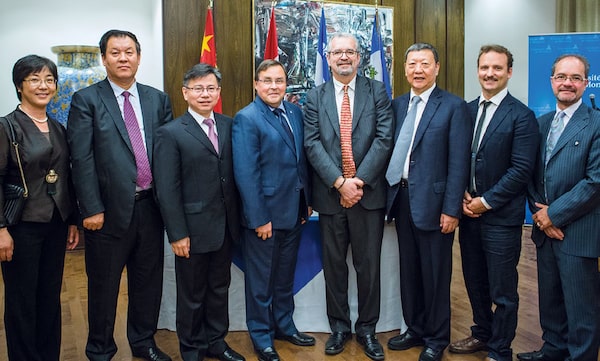
A photo from a University of Montreal newsletter features Mr. Zhang, second from left, and Mr. Niu, third from right, at the Chinese embassy in Ottawa with diplomats and representatives of the Trudeau Foundation and the university.Supplied
March 1: Trudeau Foundation returning donation with link to China
The Trudeau Foundation announced it would returning a large financial gift from Chinese billionaire Zhang Bin.
“We cannot keep any donation that may have been sponsored by a foreign government and would not knowingly do so,” president and CEO Pascale Fournier said in a statement on its website.
Ms. Fournier said the foundation would return $140,000 of a $200,000 pledge. The foundation received two payments of $70,000 each but never received the rest of the money, she said.
March 13: Denied entry to U.S., China diverts researchers to Canada
Beijing uses a “workaround strategy” for postgraduate researchers to study cutting-edge technology at Canadian and U.S. universities after Washington began denying visas for some Chinese students on the grounds that they might steal intellectual property with military uses.
A Dec. 21, 2021 CSIS report said the strategy sends some scholarship students to Canada from China with the aim of gaining access to critical high tech.
The Chinese government’s game plan includes training these Chinese citizens on how to avoid drawing too much attention when studying abroad.
The CSIS report laid out how China is using students to obtain technology that could be of benefit to the Chinese military, such as quantum computing, big data and artificial intelligence.
March 15: Trudeau names former governor-general David Johnston as independent special rapporteur
The Prime Minister ignored opposition calls for a public inquiry and named former governor-general David Johnston as the new independent special rapporteur to look into foreign interference.
The appointment came under instant criticism because Mr. Johnston is an old family friend and was a member of the Trudeau Foundation.

At Vancouver's City Hall, a seagull sits on a statue of British explorer George Vancouver. Citizens elected a new mayor and council in October of 2022.Darryl Dyck/The Canadian Press
March 16: China’s consulate meddled in Vancouver election: CSIS
China’s diplomatic mission in Vancouver actively interfered in the city’s politics, by using proxies in diaspora community organizations and grooming politicians to run in last fall’s municipal election, according to Canada’s spy agency.
A Jan. 10, 2022, CSIS report outlined how China’s then-consul-general, Tong Xiaoling, discussed mentoring – or as the report quoted her, “grooming” – Chinese-Canadian municipal politicians for higher office to advance Beijing’s interests.
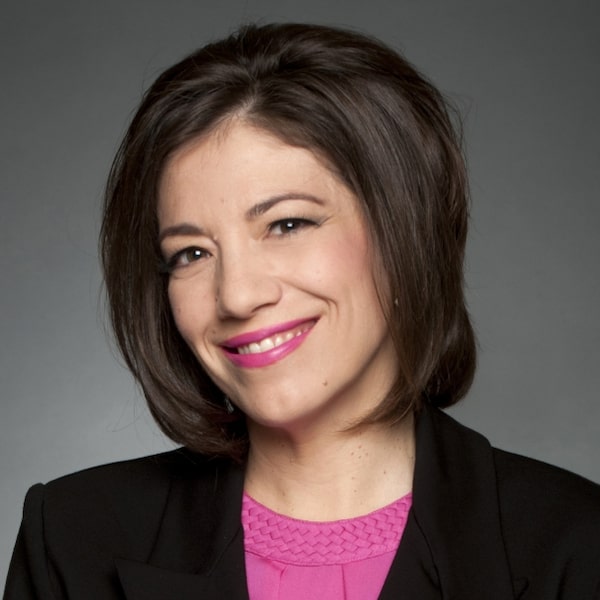
Pascale Fournier was CEO of the Trudeau Foundation.Supplied
April 11: Trudeau Foundation board quits after China-linked gift revelation
The head of the Trudeau Foundation and its board of directors resigned, citing the political backlash that followed a revelation that the true benefactor behind a large financial gift from a Beijing billionaire was the Chinese government.
The foundation announced that president and chief executive Pascale Fournier and the entire board would leave, adding that the political scrutiny surrounding the donation had put pressure on staff members and the board’s volunteer directors. “The circumstances created by the politicization of the foundation have made it impossible to continue with the status quo,” the statement said.
MPs applaud Michael Chong this past May after The Globe and Mail broke the news of a CSIS report about alleged Chinese operations against him.Sean Kilpatrick/The Canadian Press
May 1: China targeted MP Michael Chong and his relatives in Hong Kong
A top-secret CSIS intelligence assessment prepared in July of 2021 said Chinese government foreign interference ranged from investigating a Conservative MP’s relatives in China to harassing a mainland Chinese student in Canada who publicly supported Hong Kong’s democracy movement.
The report, People’s Republic of China Foreign Interference in Canada: A Critical National Security Threat, listed several examples of Chinese influence operations aimed at the opposition Conservative Party.
It said CSIS reporting from 2021 indicated that China’s intelligence service, the Ministry of State Security (MSS), “has taken specific actions to target Canadian MPs” who are linked to the February, 2021, parliamentary motion condemning Beijing’s oppression of Uyghurs and other Turkic minorities. The motion, which passed, declared China’s conduct amounts to genocide.
The spy agency said an MSS officer sought information on an unnamed Canadian MP’s relatives “who may be located in the PRC, for further potential sanctions.” This effort, the CSIS report said, “is almost certainly meant to make an example of this MP and deter others from taking anti-PRC positions.”
A national-security source said the MP targeted was Conservative MP Michael Chong and that Zhao Wei, a Chinese diplomat in Canada, was working on the matter.
Mr. Chong said he had no knowledge of this. He had been hit with sanctions by China in March, 2021, after sponsoring the parliamentary motion on genocide and was careful not to contact his relatives since.
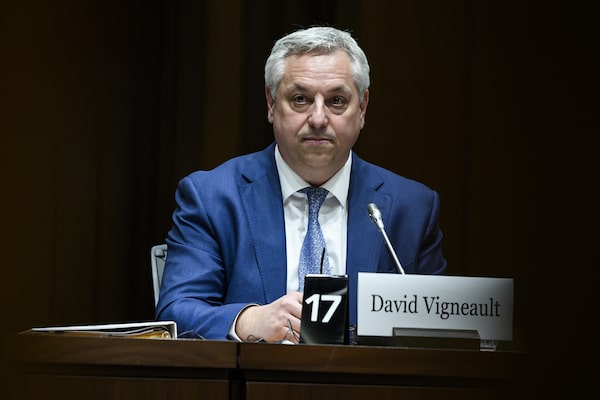
CSIS chief David Vigneault testifies at a parliamentary hearing.Justin Tang/The Canadian Press
May 2: CSIS head tells Chong he was target of China
CSIS head David Vigneault told Mr. Chong that he and his family in Hong Kong had been targeted by Beijing after he sponsored a parliamentary motion condemning Beijing’s conduct in Xinjiang as genocide.
In an extraordinary meeting brokered by the Prime Minister, Mr. Chong met with Justin Trudeau, his national-security adviser Jody Thomas and Mr. Vigneault.
Mr. Vigneault confirmed to Mr. Chong that Zhao Wei, a Chinese diplomat in Canada, was involved in the targeting.

Zhao Wei has left Canada since the Trudeau government declared him persona non grata.Easy Media
May 9: Canada expels diplomat over Beijing’s targeting of Michael Chong
Ottawa expelled Chinese diplomat Zhao Wei for interfering in Canada’s politics after a week of cabinet-level preparations bracing for a range of potential retaliatory responses.
Foreign Affairs Minister Mélanie Joly, who announced the rare measure, said the decision was taken following “careful consideration of all factors at play” in the matter.
Michael Chan, then Ontario's trade minister, confers with premier Kathleen Wynne on a 2014 mission to China.Qilai Shen/The Globe and Mail
May 19: Liberal powerbroker under CSIS surveillance
CSIS sought an electronic and entry warrant to monitor former Ontario cabinet minister Michael Chan in the lead-up to the 2021 federal election.
Mr. Chan had for years been a national-security target of CSIS because of alleged links to China’s Toronto consulate and association with proxies of Beijing. The Globe reported in 2015 that Mr. Chan had been the subject of CSIS security briefings in Ontario. He now serves as deputy mayor of the city of Markham, but was in the Ontario Liberal cabinets of Dalton McGuinty and Kathleen Wynne from 2007 to 2018.
Mr. Chan has denied the allegations, telling The Globe that he is a loyal Canadian and accusing CSIS of character assassination.
David Johnston leaves an Ottawa news conference on May 23, after presenting his initial findings as special rapporteur on foreign interference.Sean Kilpatrick/The Canadian Press
May 23: Johnston rejects public inquiry
David Johnston said China’s interference in Canadian politics is an “increasing threat to our democratic system” but ruled out a public inquiry on the matter, saying intelligence on Beijing’s activities is highly classified and could never be openly discussed with Canadians.
In a 55-page report Mr. Johnston said he uncovered no proof that Justin Trudeau ignored intelligence briefings on Chinese influence operations in the 2019 and 2021 elections, or warnings of attempts by Beijing to intimidate Conservative foreign affairs critic Michael Chong.
Erin O’Toole is the former federal Conservative leader.Justin Tang/The Globe and Mail
May 26: O’Toole informed he is being targeted by Beijing
CSIS informed former Conservative leader Erin O’Toole that he had been targeted by Beijing during his time as party chief and remained a target because of his criticism of the Chinese Communist Party.
Mr. O’Toole was the second MP to learn that they or their family were targeted by the Chinese government.
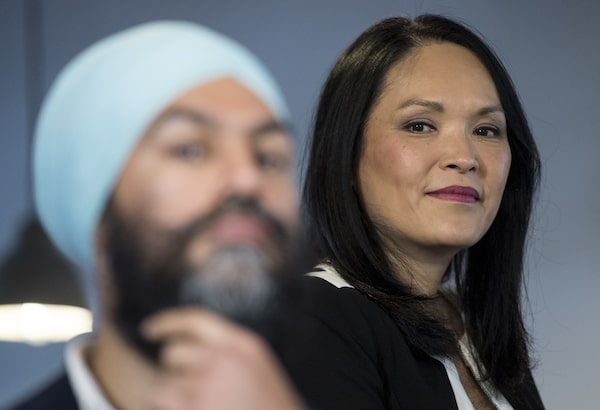
NDP MP Jenny Kwan watches party leader Jagmeet Singh gets ready for a news conference in Coquitlam, B.C., in 2019.Jonathan Hayward/The Canadian Press
May 29: MP Kwan identified as China target, prompting fresh call for public inquiry
New Democrat Jenny Kwan became the third opposition MP to be identified as a target of Chinese state intimidation, setting off a new round of calls for the government to appoint a full-fledged public inquiry into foreign interference.
Ms. Kwan said she received a classified CSIS briefing during which she was told that she had been – and still was – a target because of her outspoken criticism of China’s authoritarian regime.
The Vancouver MP has been a strong critic of Chinese efforts since 2020 to silence opposition and dissent in Hong Kong, where she was born, as well as Beijing’s brutal treatment of Muslim Uyghurs in China’s Xinjiang province.
Mr. Johnston testifies in Ottawa a few days before his resignation as special rapporteur.Justin Tang/The Canadian Press
June 9: Johnston resigns as special rapporteur
David Johnston abruptly resigned as Ottawa’s special rapporteur, citing the “highly partisan atmosphere” and urging the Prime Minister to appoint a respected Canadian with national-security experience to carry on the role.
After the resignation, the leaders of the Conservatives, Bloc Québécois and New Democrats immediately called on the Prime Minister to set up a public inquiry and to work with all parties to counter foreign interference.
The resignation came after The Globe reported that Navigator, a consulting firm hired by Mr. Johnston, had worked for Independent MP Han Dong, a subject of Mr. Johnston’s initial investigation. Mr. Dong left the Liberal caucus in March following a series of reports by Global News that alleged he was a “witting” participant in a Beijing-backed foreign interference network. Mr. Dong has denied the allegations.
The opposition parties had voted on three occasions for a public inquiry headed by a judge with full subpoena powers and the ability to cross-examine witnesses. On May 31, the Commons voted for the removal of Mr. Johnston as special rapporteur.
Sept. 7: Quebec Court of Appeal judge to lead interference inquiry
Quebec Court of Appeal Justice Marie-Josée Hogue agreed to head a public inquiry into foreign interference by China and other hostile states.
Foreign interference: More from The Globe
On The Decibel
The Globe’s senior parliamentary reporter, Steven Chase, joins The Globe’s news podcast to explain what’s at stake in the foreign-interference inquiry and who its main players will be in the coming months. Subscribe for more episodes.
From our Ottawa bureau
Election watchdog probing foreign interference complaint, former Conservative MP Kenny Chiu says
India to be included in foreign-interference inquiry into federal elections
Commentary
Andrew Coyne: Did China and India meddle in the Conservative leadership race?
Campbell Clark: How Canada’s foreign policy isn’t keeping up with a rapidly changing world
Thomas Juneau: The foreign interference inquiry can’t shy away from revealing sensitive truths
 Steven Chase
Steven Chase Robert Fife
Robert Fife